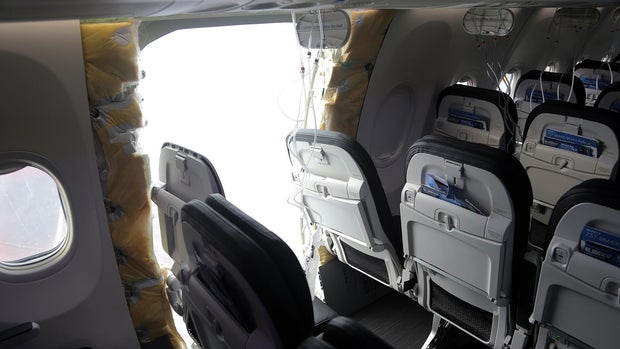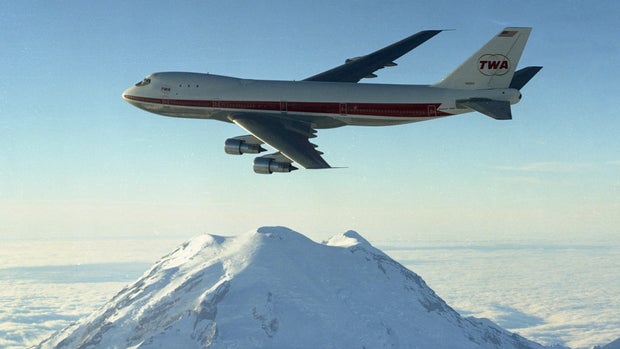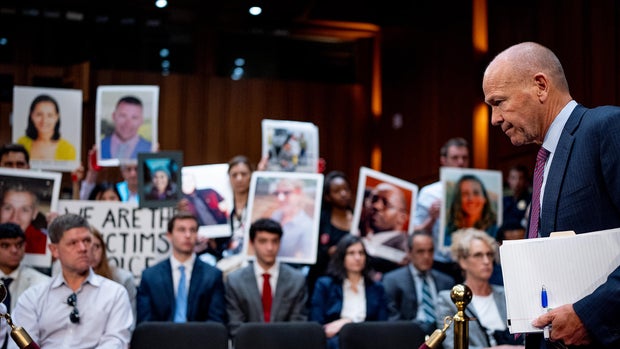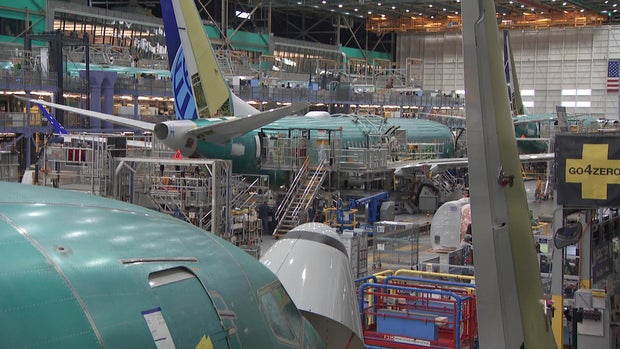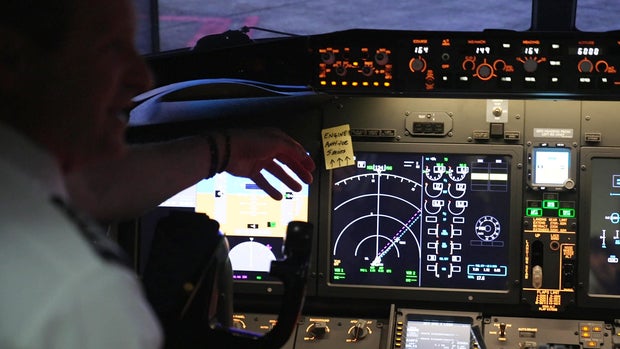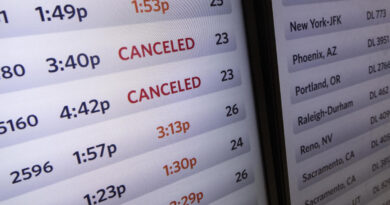Is Boeing recovering the public’s trust?
Every two seconds a Boeing 737 takes off or lands somewhere around the world. For over a century Boeing airplanes have embodied American engineering prowess – a confidence colloquially expressed in the saying, “If it ain’t Boeing, I ain’t going.”
“It was pride in our country’s iconic manufacturer; there were no boundaries on it for what great it could do,” said Dennis Tajer, a 737 captain. He’s flown for American Airlines for over 30 years. To him, Boeing was more than just the gold standard: “It was the only standard,” he said.
Yet he speaks of Boeing in the past tense. “Yeah, these are the stories of Boeing past,” Tajer said. “Boeing had our trust because they earned it. Boeing was a great company. But it’s no longer a great company.”
For Tajer, who has become an outspoken critic of Boeing’s leadership, things changed in the aftermath of the 737 Max crashes in 2018 in Indonesia and 2019 in Ethiopia, resulting in 346 deaths. Boeing apologized and said they’d do better. But then, this January a door panel on a 737 Max blew out mid-flight. There were no serious injuries, but Boeing’s reputation was wounded again.
National Transportation Safety Board via Getty Images
It’s a stark contrast for the storied company known for putting engineering and quality first, one that started in 1916, building seaplanes in Seattle, Washington. Boeing became a symbol of national pride during World War II, churning out 16 B-17s every day.
Boeing then introduced Americans to the jet age, launching four new successful airplanes in just over a decade – the 707, 727, 737 and 747, the world’s first jumbo jet – all while building the rockets that helped put a man on the moon.
Gallery: Boeing’s 747, the “queen of the skies”
So, how did we get here, to Boeing facing a potential criminal trial and dealing with a loss of public confidence?
Investigative reporter and author Peter Robison wrote the 2021 book “Flying Blind: The 737 Max Tragedy and the Fall of Boeing,” in which he describes how the crashes exposed “the rotted culture of an iconic American company.” “That’s pretty much directly from the words of Boeing’s employees,” said Robison. “It’s systemic. It’s culture. Senior leadership had its eye on stock price, had its eye on share buybacks, and weren’t listening to the people on the ground.”
Doubleday
Robison started covering the company shortly after the 1997 merger between Boeing and McDonnell Douglas. “One person at Boeing described the people from McDonnell Douglas as hunter-killer assassins,” said Robison. “They came into this collegial environment at Boeing and just went through them like a knife through butter.”
Since that 1997 merger, Boeing has become a corporate behemoth in defense, space and commercial aviation. By 2019 It had spent more than $60 billion on stock buybacks, helping boost its stock price by over 1,000 percent.
Robison said, “Boeing lost control of its production system. It spun off parts of it that were essential. These aren’t just interchangeable commodities; it’s a complex product that needs to have a different level of scrutiny every step of the way.”
“And it’s ultimately people’s lives at stake,” said Van Cleave.
“Exactly. This is a business where one miss is too many,” said Robison.
After its third “miss” this January, when a door panel blew out on an Alaska Airlines 737 at 16,000 feet, Boeing said more of the same – eerily similar to its statements after the 737 Max crashes: We’re sorry, and we’re fixing it.
Boeing now says it’s investing heavily in engineering to “enable safe and sustainable flight in the years ahead.”
Andrew Harnik/Getty Images
CBS News had hoped to sit down and talk with someone from Boeing about how the company got here, and where it’s going in the future. Instead, we were invited to what amounted to a media field trip, and a tour of the 737 Max production line.
CBS News
As a part of that tightly-controlled tour late last month, senior vice president of quality Elizabeth Lund took some reporter questions.
Van Cleave asked, “After the Max crashes, we heard very similar things, and we’re back here again talking about fixing problems that sound a lot like the problems that should have gotten fixed before. Why should anyone believe anyone from Boeing that you’re actually fixing anything?”
“We are a company that is deeply committed to the flying public’s safety,” Lund replied. “We are deeply committed to our employees. We are deeply committed to doing the right thing.”
Just this past week, in an effort to clean up persistent quality control problems, Boeing announced it would buy back Spirit Aerosystems, a Kansas-based contractor building the 737 fuselage. Boeing had spun off Spirit in 2005 in an attempt to reduce manufacturing costs.
Captain Tajer said, “Boeing seems to do the right thing only after they do the wrong thing; that’s the problem. They react to bad things instead of being proactive.”
In Tajer’s mind, Boeing has much more work to do. But when asked how he feels getting into the cockpit of his plane today, Tajer replied, “More ready than I’ve ever been. I have absolutely no hesitation in flying the aircraft based on what I know about it. The unnerving part, particularly on the Max, is I don’t know what you put on it that you decided not to tell me.”
On the 737 Max Tajer now uses a rather analog tool in an otherwise digital cockpit: a Post-It Note, to help remind him of another potential problem, a design issue in the engine. “The FAA sent us this airworthiness directive saying, ‘Hey, you gotta be aware of this. And then it can get so bad that it may cause you to have to do an off-airport landing’ – their words: ‘Off-airport.’ What the heck does that mean? That’s a cornfield, or the Hudson River.”
CBS News
Boeing expects to have a fix by next year.
Tajer said, “I have a book of Post-It Notes. Now I look at these and think, ‘How many of these am I gonna have to fill out because Boeing didn’t tell me about something or they learned something new about a faulty design?'”
Still, Tajer (and every 737 pilot we spoke to) says the plane is safe, but that change at Boeing is desperately needed now.
“It’s not the airplane that I don’t trust,” Tajer said. “It’s the people who delivered it to me.”
For more info:
Story produced by John Goodwin. Editor: Ed Givnish.


